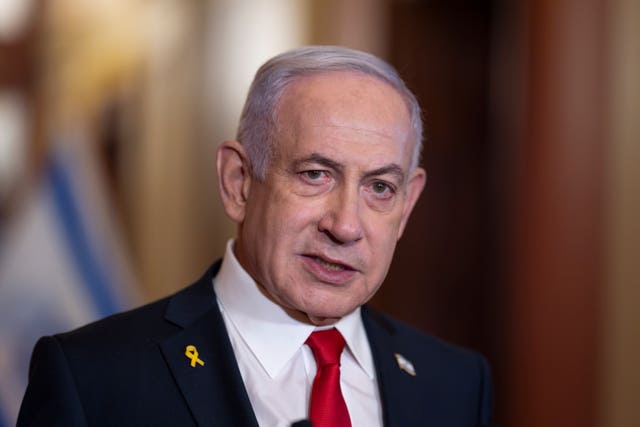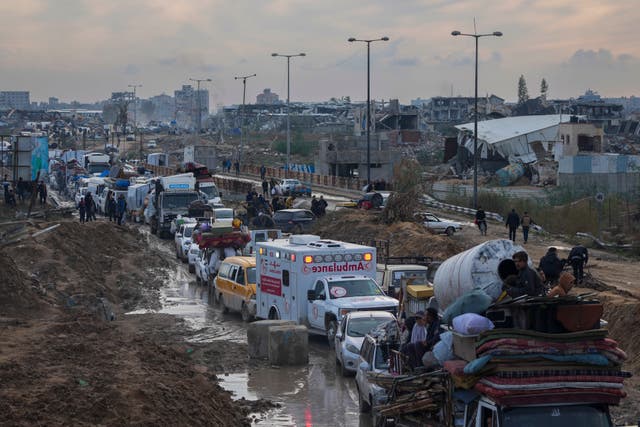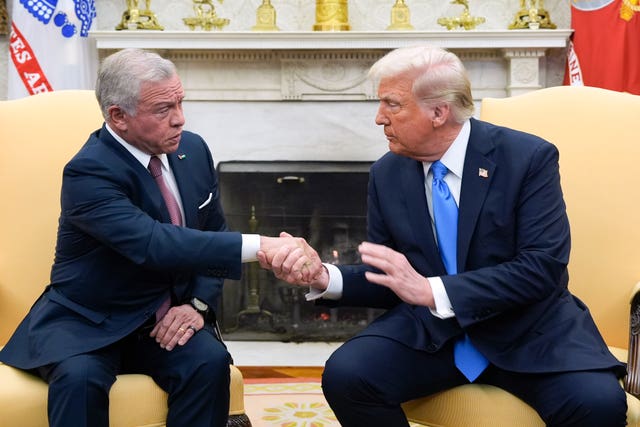Netanyahu threatens to resume fighting in Gaza if hostages not freed by Saturday
Under the ceasefire, Hamas has released 21 hostages in a series of exchanges for Palestinian prisoners.

Israeli Prime Minister Benjamin Netanyahu has threatened to withdraw from the ceasefire in the Gaza Strip and resume the fight against Hamas if the militant group does not go ahead with the next scheduled release of hostages on Saturday.
Hamas said on Monday – and reiterated on Tuesday – that it planned to delay the release of three more hostages after accusing Israel of failing to meet the terms of the ceasefire, including by not allowing enough tents and other aid into Gaza.
Amid the mounting tensions, US President Donald Trump emboldened Israel to call for the release of even more remaining hostages on Saturday.
After meeting Jordan’s King Abdullah II at the White House on Tuesday, Mr Trump predicted Hamas would not release all the remaining hostages as he had demanded.

Since the ceasefire took effect, Hamas has released 21 hostages in a series of five exchanges for more than 730 Palestinian prisoners.
A second phase calls for the return of all remaining hostages and an indefinite extension of the truce. However, Mr Trump’s statements about both the pending releases and plans for post-war Gaza have destabilised its fragile architecture.
It was not immediately clear whether Mr Netanyahu’s threat referred to the three hostages scheduled for release on Saturday or all the remaining hostages, which would be a departure from the terms of the ceasefire. Mr Netanyahu’s office said it “welcomed President Trump’s demand”.
Mr Netanyahu’s office also said it ordered the military to mobilise troops on and around the Gaza Strip in preparation for scenarios that could arise.
Mr Trump has said Israel should cancel the entire ceasefire if all of the roughly 70 hostages are not freed by Saturday.
Hamas brushed off his threat on Tuesday, doubling down on its claim that Israel has violated the ceasefire and warned that it would only continue releasing hostages if all parties adhered to the ceasefire.

Mr Trump is hosting King Abdullah II in Washington as he escalates pressure on Jordan to take in refugees from Gaza, perhaps permanently, as part of his audacious plan to remake the Middle East.
“We’re not going to buy anything. We’re going to have it,” Mr Trump said of US control of Gaza as the Jordanian king stood by.
King Abdullah was asked repeatedly by reporters about Mr Trump’s plan to remake the Middle East, but did not make substantive comments. He also did not comment on the idea that a large number of refugees from Gaza could be welcomed in Jordan, where millions of Palestinian refugees already reside.

During the first six-week phase of the ceasefire, Hamas committed to freeing 33 hostages captured in its attack on Israel on October 7 2023, while Israel said it would release nearly 2,000 Palestinian prisoners. The sides have carried out five swaps since January 19.
The war could resume in early March if no agreement is reached on the more complicated second phase of the ceasefire. But if it does, Israel will face a drastically different battlefield.
After forcing hundreds of thousands of Palestinians to evacuate to southern Gaza in the early stages of the war, Israel allowed many of those displaced people to return to what is left of their homes, posing a new challenge to its ability to move ground troops through the territory.





